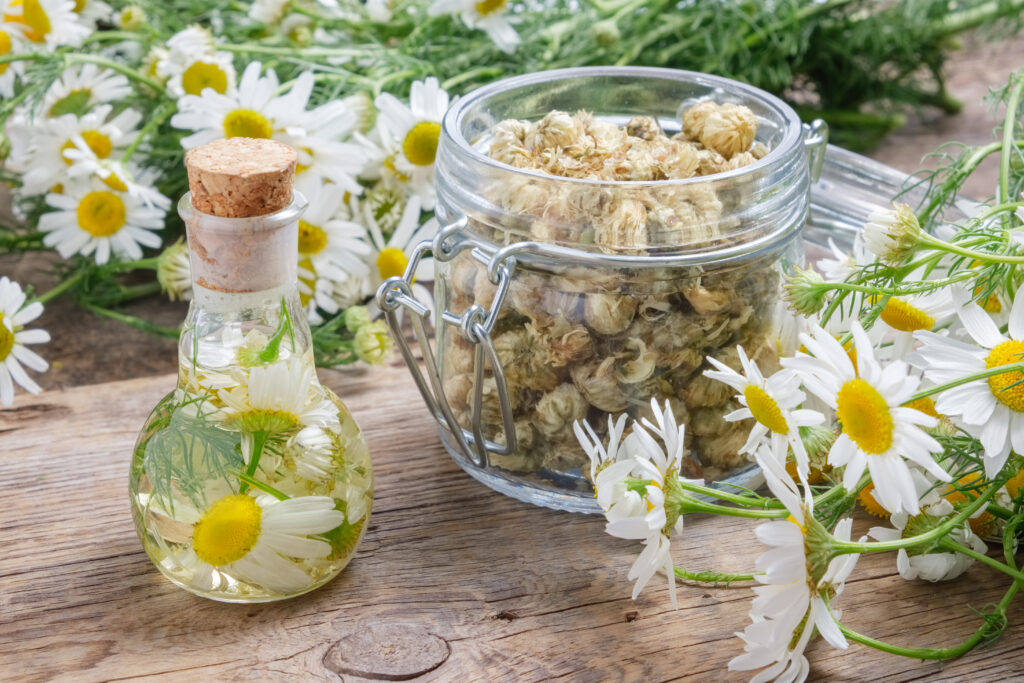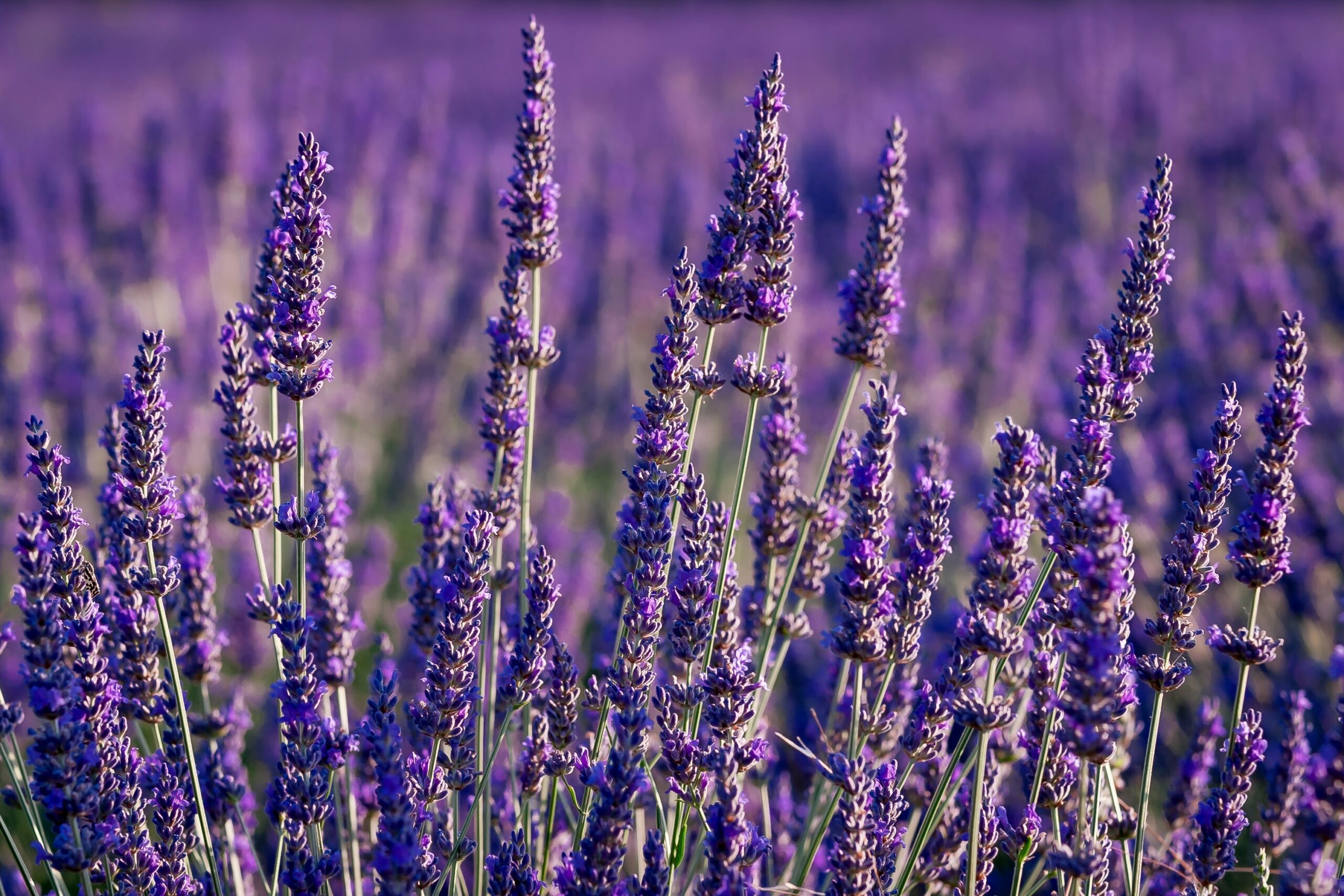In a world that moves fast and demands more, many of us are turning to nature for balance. Herbal remedies offer gentle, plant-based relief from stress and anxiety, without the side effects of synthetic medications. This post explores eight calming herbs backed by tradition and modern research, how they work, how to use them, and when to be cautious. Whether you’re navigating daily pressure or deeper overwhelm, these herbs can help you breathe easier, sleep better, and find a little peace in your cup or capsule.
Outline
- Understanding Herbal Support for Anxiety
- 8 Calming Herbs and Their Benefits
- Chamomile
- Lavender
- Lemon Balm
- Passionflower
- Ashwagandha
- Valerian Root
- Holy Basil (Tulsi)
- Rhodiola Rosea
- How to Use These Herbs Safely
- When to Use Single Herbs vs. Blends
- Tips for Building a Calm Ritual with Herbs
- Caution, Interactions & When to See a Professional
- Final Thoughts: Let Nature Hold You
Understanding Herbal Support for Anxiety
Herbs aren’t a magic fix — but they gently support your nervous system, often without dependency or sedation. Many adaptogens and nervines (herbs that support the nervous system) have been used for centuries in Ayurvedic, Chinese and Western herbal traditions.
What they can help with:
- Calming racing thoughts
- Supporting restful sleep
- Easing physical tension
- Reducing reactivity to stress
Think of them as gentle companions, not cures.

Calming Herbs and Their Benefits
Chamomile (Matricaria chamomilla)
Best for: Mild anxiety, sleeplessness, digestion-related stress
How it works: A mild sedative and muscle relaxant
- Enjoy as a tea before bed
- Great for children, elderly, or sensitive systems
- Often paired with lemon balm or lavender
Lavender (Lavandula angustifolia)
Best for: Tension, headaches, restlessness
How it works: Calms the nervous system; reduces cortisol
- Use as an essential oil, tea, or capsule
- Inhalation can reduce anxiety in minutes
- Also helpful for panic episodes and public speaking
✨ Try a few drops of lavender oil on your pillow or wrist.
Lemon Balm (Melissa officinalis)
Best for: Nervousness, mild depression, stress-related digestion
How it works: Boosts mood, calms the mind
- Tastes lovely as a fresh tea
- Often used in blends for calm focus
- Pairs well with green tea or chamomile
Passionflower (Passiflora incarnata)
Best for: Racing thoughts, insomnia, tension
How it works: Helps quiet the mind and promote deeper sleep
- Stronger than chamomile; good in night-time teas or tinctures
- Can be mildly sedating — best used before bed
Ashwagandha (Withania somnifera)
Best for: Chronic stress, burnout, hormonal imbalance
How it works: Adaptogen — helps the body cope with long-term stress
- Taken as a capsule or powder
- Builds effects over time (2–4 weeks)
- Often combined with other adaptogens like Rhodiola
✨ Best taken in the morning for energy stability throughout the day.
Valerian Root (Valeriana officinalis)
Best for: Insomnia, nighttime anxiety, nervous system agitation
How it works: A strong herbal sedative — promotes deep sleep
- Often used in sleep blends
- Smells earthy or musky — but effective!
- Not recommended for daytime use due to drowsiness
Holy Basil / Tulsi (Ocimum sanctum)
Best for: Emotional overwhelm, mental fog, daily resilience
How it works: An adaptogen that regulates cortisol
- Lovely as a daily tea or tincture
- Uplifting, centring, and balancing
- Pairs beautifully with lemon or ginger
Rhodiola Rosea
Best for: Low energy, stress-induced fatigue, mental performance
How it works: Boosts energy and focus while reducing stress
- Ideal for morning or early afternoon use
- Works well for brain fog and low motivation
- Not ideal late at night (can be too energising)
How to Use These Herbs Safely
| Form | Use |
|---|---|
| Tea | Gentle, ritual-based, ideal for beginners |
| Tincture | Stronger, faster-acting, alcohol-based |
| Capsules | Convenient, great for travel or routine |
| Essential oil | Aromatherapy use only (not for ingestion) |
- Start with one herb at a time
- Follow dosage guidelines (especially for tinctures or capsules)
- Check for interactions if you’re on medication or pregnant
When to Use Single Herbs vs. Blends
- Use single herbs to learn what works best for your body
- Try blends when you’re targeting multiple symptoms (e.g. stress + poor sleep)
- Look for ready-made calming teas that include 2–3 synergistic herbs
- Experiment with DIY tea blends if you’re feeling creative!
Example blend: Chamomile + Lemon Balm + Lavender = gentle evening wind-down
Tips for Building a Calm Ritual with Herbs
Herbs work best when paired with intentional habits:
- Create a bedtime tea ritual (same time each night)
- Use aromatherapy while journalling or meditating
- Keep a small herbal tea shelf in your kitchen
- Try a midday ashwagandha latte instead of coffee
- Make herb use part of your self-care rhythm, not just a reaction
Caution, Interactions & When to See a Professional
Herbs are gentle, but not risk-free:
- Don’t combine with prescription sedatives or antidepressants without consulting your doctor
- Some herbs (like valerian) may cause drowsiness or vivid dreams
- Avoid strong herbs during pregnancy or breastfeeding unless approved
- If anxiety is severe or ongoing, see a qualified herbalist or therapist
Always listen to your body. If a herb feels too strong, try something lighter.
Final Thoughts: Let Nature Hold You
Herbs remind us that nature wants to support us — gently, patiently, consistently. Whether you’re calming your nerves with a cup of lemon balm tea or easing into sleep with passionflower, you’re creating a quiet ritual of care.
So breathe deeply. Sip slowly.
Let the plants do what they’ve done for thousands of years:
Help humans feel a little more human.








